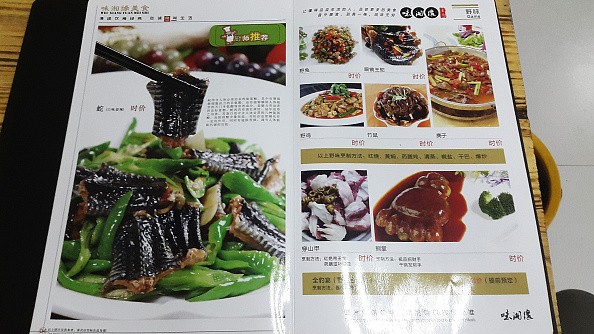There's a renewed call from conservation groups to intensify protection of the Chinese pangolin after a Sina Weibo post showed meat of the endangered species being served to a business delegation from Hong Kong.
The four pictures of the buffet that appeared on social media were taken in the Guangxi Zhuang autonomous region in 2015.
There are around 100,000 pangolins captured every year from across Africa and Asia, with most shipped to China and Vietnam, where their meat and scales are sold. It is believed that these have medicinal qualities.
Pangolin scales are dried and roasted when used in traditional Chinese medicine for relieving palsy, stimulating lactation and draining pus. They are also used to make coats. These scales have a black market price of over $3,000 a kilogram.
The International Union for the Conservation of Nature (IUCN) has all eight species of pangolin on its list of animals endangered with extinction.
The IUCN listed the Chinese pangolin as "critically endangered" in 2014 after population declined by up to 94 percent in 2003 from the 1960s. It is estimated that its population at 50,000 to 100,000.
Traffic China recommended that the Chinese government should fortify the management of the animal on top of upgrading it from the list of second-class protected species to first-class.
Wu Shibao, a professor at South China Normal University who has devoted himself to pangolin protection since 1995, said the Chinese pangolin is already extinct in the wild. He added that some hunters told him they haven't seen a pangolin in the wilderness for three decades.
However, Wu is positive about the pangolin's future considering that the giant pandas and Tibetan antelope were saved from the brink of extinction.
According to one of the authors of the review, it is more difficult to protect the Chinese pangolin that the likes of the giant panda since the majority of China's zoos or rescue centers or zoos are not properly trained on how to keep pangolins alive and energize reproduction.



























